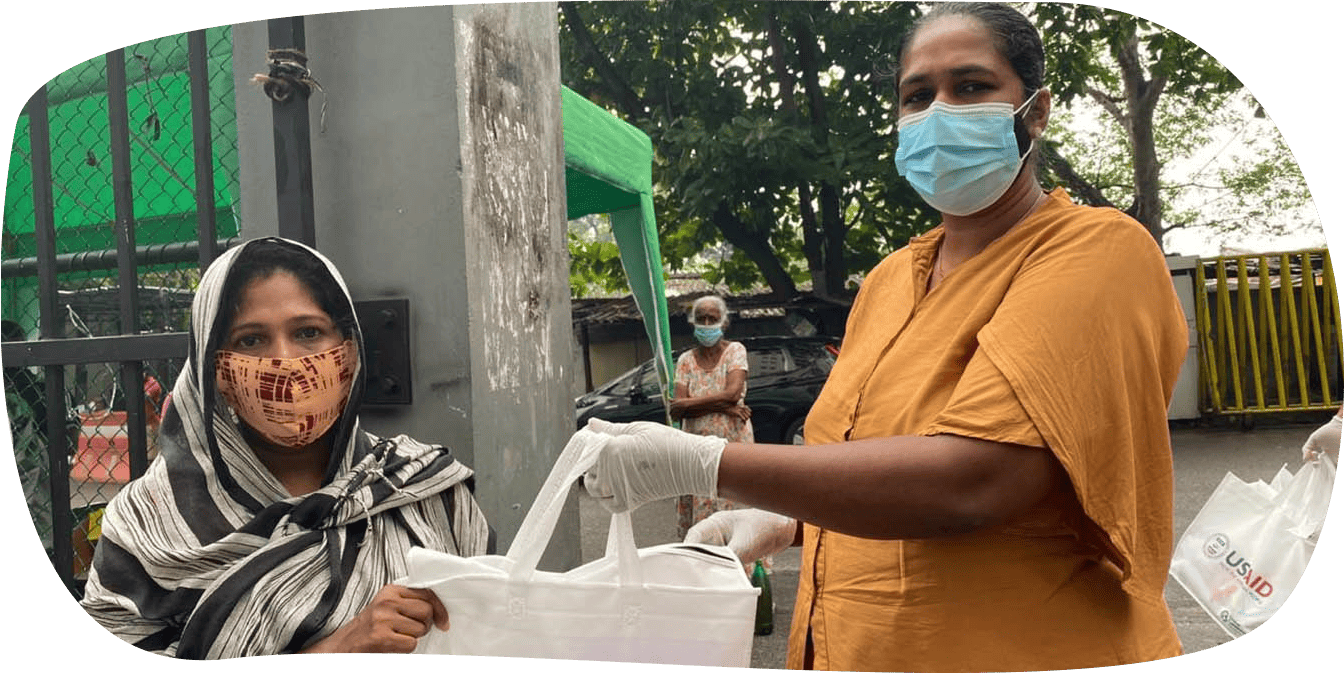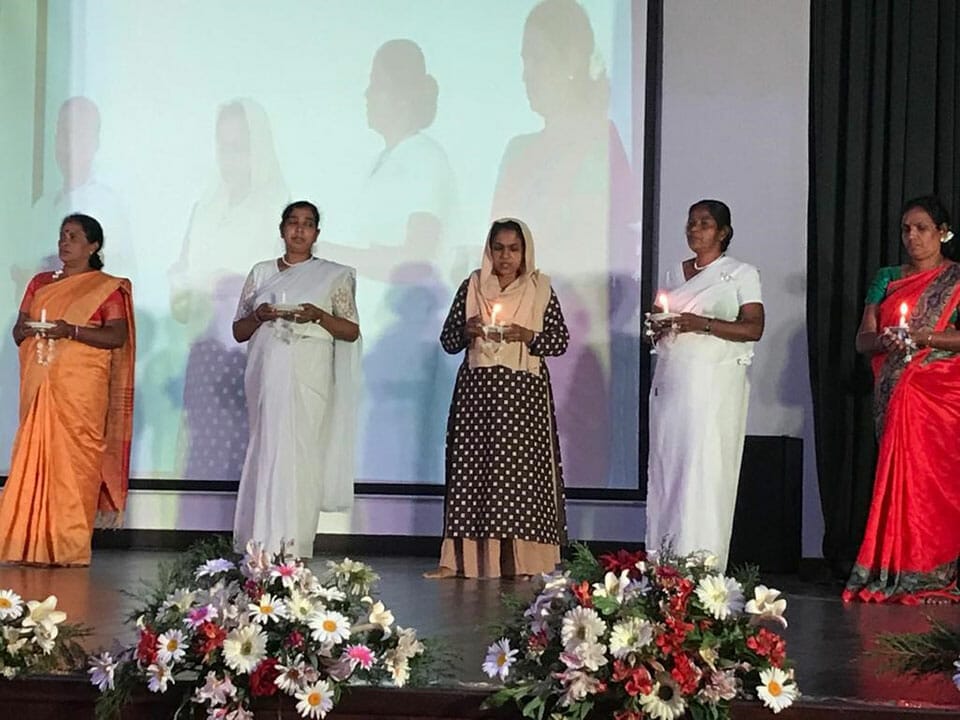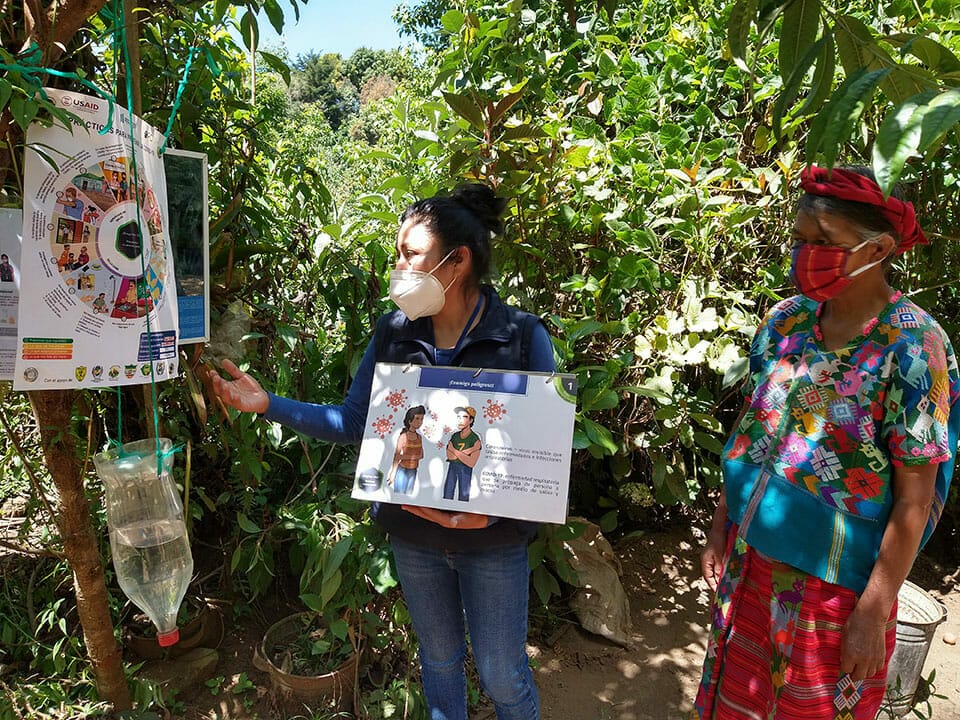Global Communities and PCI Respond to COVID-19

For communities around the world, the arrival of COVID-19 changed life overnight. Everyday life ground to a halt, and lifesaving programs were forced to adapt.
Global Communities and PCI, a Global Communities Partner, brought to the crisis decades of experience combating epidemics and communicable diseases, from Ebola to cholera and beyond. Based on this expertise, Global Communities and PCI's global teams pivoted to respond to COVID-19, both by initiating new project activities and adapting ongoing activities to new realities.
The health dangers of the virus required immediate action, including new hand-washing stations, delivery of personal protective equipment and access to accurate information to reduce the spread of COVID-19. The secondary effects of the pandemic were no less severe, with communities cut off from contact, children unable to access school meals and economic opportunity severely curtailed.
In the face of enormous challenges, communities came together and found innovative new solutions to promote health, provide opportunity and stay connected. Here are a few of their stories.

Photo by Global Communities Sri Lanka
In Sri Lanka, the Social Cohesion and Reconciliation program (SCORE) worked with the U.S. Agency for International Development (USAID) to reprogram funds to support hospitals and communities as they built isolation units and purchased and manufactured personal protective equipment, soap and materials to make surgical masks. SCORE distributed more than 4,000 personal hygiene kits to low-income women, including essential items such as sanitary pads, soap, masks, baby-safe antibacterial wipes and hand sanitizer. Mindful of the new realities and challenges brought on by the pandemic, particularly for women as they face increased financial difficulties and responsibilities at home, SCORE helped lead a campaign against gender-based violence. As in many other countries, an increase in domestic violence was reported in Sri Lanka during pandemic-related lockdowns. SCORE conducted a webinar to address the transformative role of women during COVID-19 to coincide with the International Day for the Elimination of Violence against Women and Human Rights Day. The webinar brought together 278 different stakeholders from Sri Lanka and abroad and highlighted different aspects of gender-based violence. The discussion informed a policy brief that will be translated into a comprehensive action plan.
In partnership with USAID's Bureau for Humanitarian Assistance, PCI worked in Guatemala to control the spread of the coronavirus in hard-hit areas through education, delivery of hand-washing and disinfection kits and building public support for better contact tracing and prevention. To this end, staff shared prevention messages and countered rumors about COVID-19 through a mix of traditional and electronic outreach tools, including home visits, information kiosks, promotional videos and text messaging campaigns. PCI's social media efforts in Guatemala garnered the attention of nearly 38,400 Facebook users as well as 1,306 Instagram views and 702 Twitter views. PCI also advertised on the most widely broadcasted radio network in the country, which ensured comprehensive coverage of all target municipalities as well as surrounding areas. These radio spots were produced with the Ministry of Public Health. Additionally, PCI had 77 anti-rumor agents distributed in each intervention area, all of whom disseminated facts about COVID-19 to communities and households through text messages, social media, community interventions and conversations.

Photo by PCI Guatemala
In Rwanda, the USAID/PEPFAR-funded Improved Services for Vulnerable Populations (ISVP) program has a project goal of assisting 50,000 vulnerable households to reduce economic vulnerability by empowering parents to make investments that meet the unique needs of their families, particularly young children and adolescents.
The project's regular activities include interventions such as health and hygiene promotion, creation of clinical-community linkages and economic strengthening. In response to COVID-19, ISVP provided recovery grants to savings groups supported by the program to enable them to recover from the economic shock caused by the pandemic. Before the disbursement of the grant, the program conducted a rapid assessment to determine the extent to which each group was affected by the lockdown and closure of business activities.
The savings groups were then classified into three categories which received $100, $200 or $300, ranging from the least to the most affected groups. Additionally, ISVP worked with USAID to reprogram funds to disseminate COVID-19 prevention messages through posters, handouts and SMS; and install 1,700 hand-washing stations at health posts, markets and other public areas.
The PCI-led San Diego Trafficking Prevention Collective extensively adapted programming to address COVID-19-related challenges. When schools closed in mid-March 2020, law enforcement officials and human trafficking watchdog groups were concerned students would be even more susceptible to sexual exploitation.
Fast Facts
In Brazil, Sowing Futures program teams worked in partnership with the John Deere Brazil Foundation to combat food insecurity caused by the pandemic. They mobilized community leaders, partners and municipal governments to deliver 3,836 food baskets to nearly 2,000 families. Deere and community volunteers logged more than 1,300 hours to support organization and delivery of food aid.
Reports of technology-based exploitation to the National Center for Missing and Exploited Children tripled during the first few months of the pandemic. As a result, the Collective created the Virtual Teacher Academy; developed digital programming shifts to reach teachers, parents and students online; and created a COVID-19 survival kit with abridged activities for students and their caregivers that focused on online and social media safety.
Story by Amy Levey

